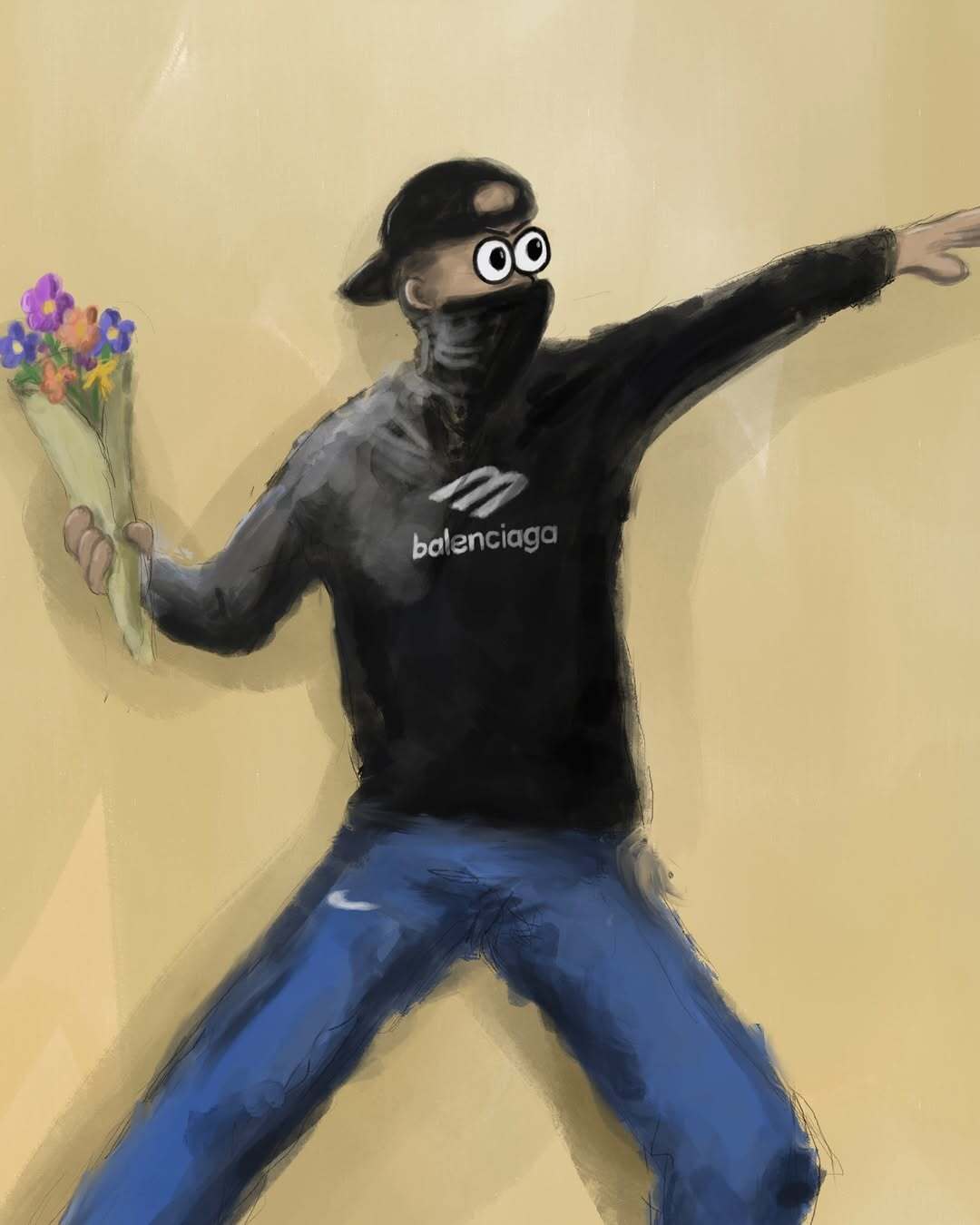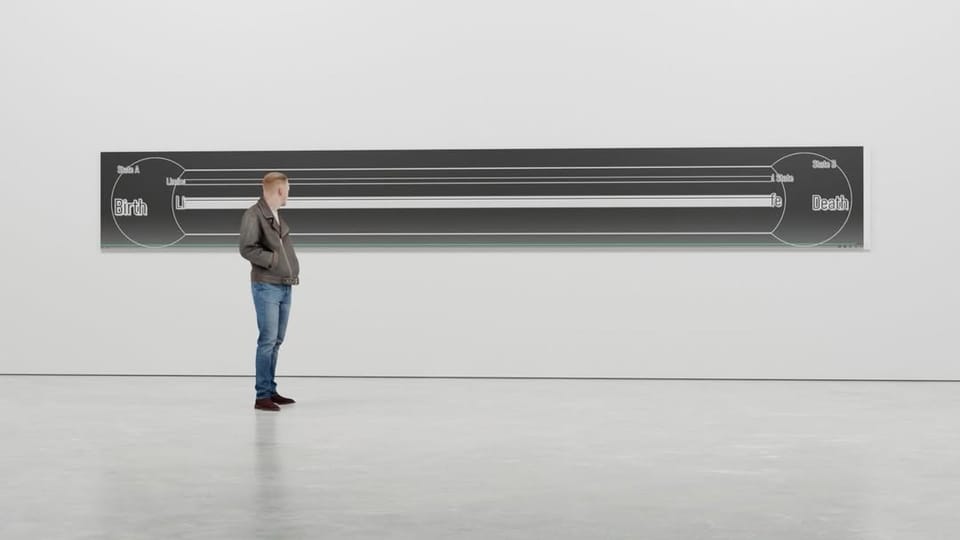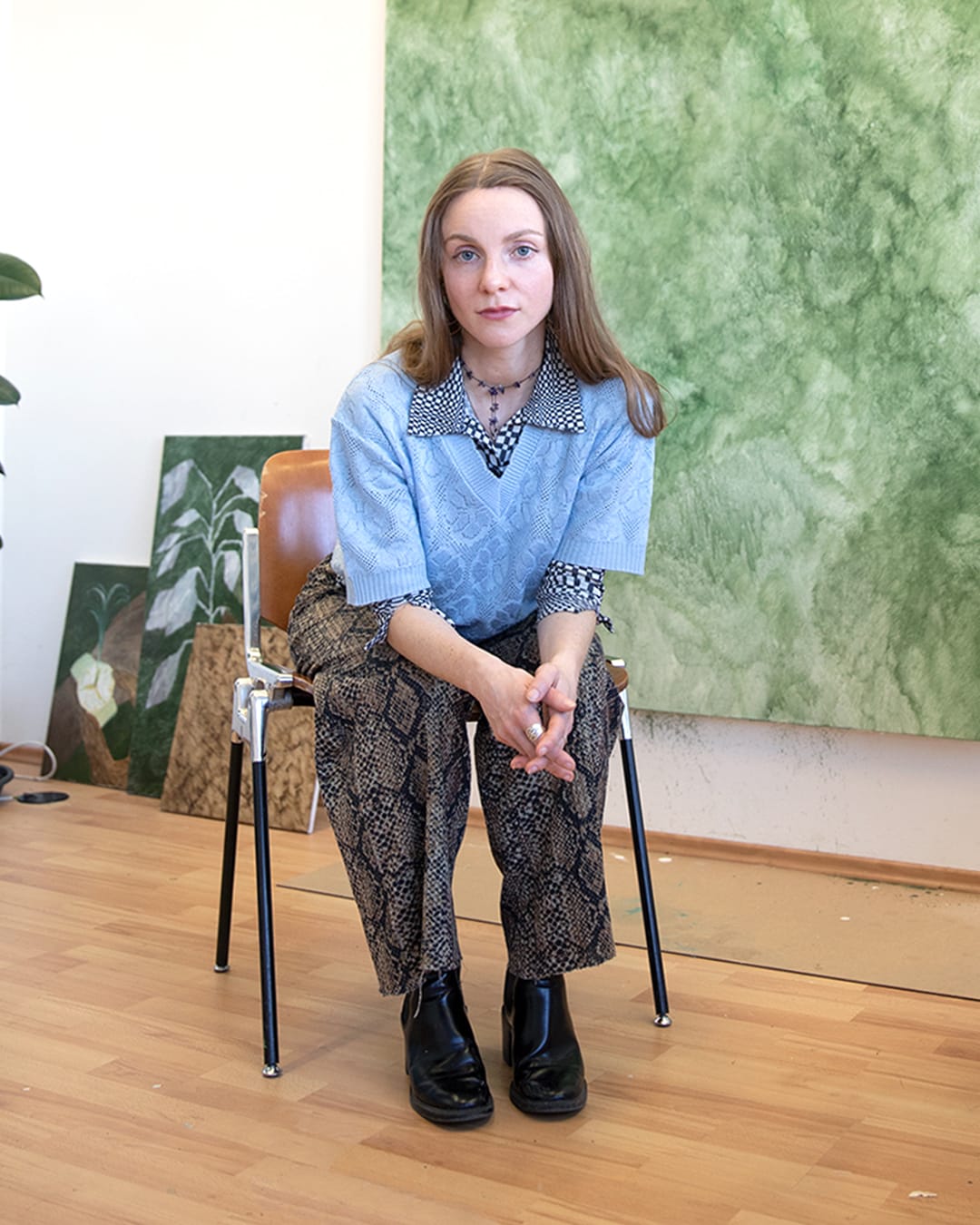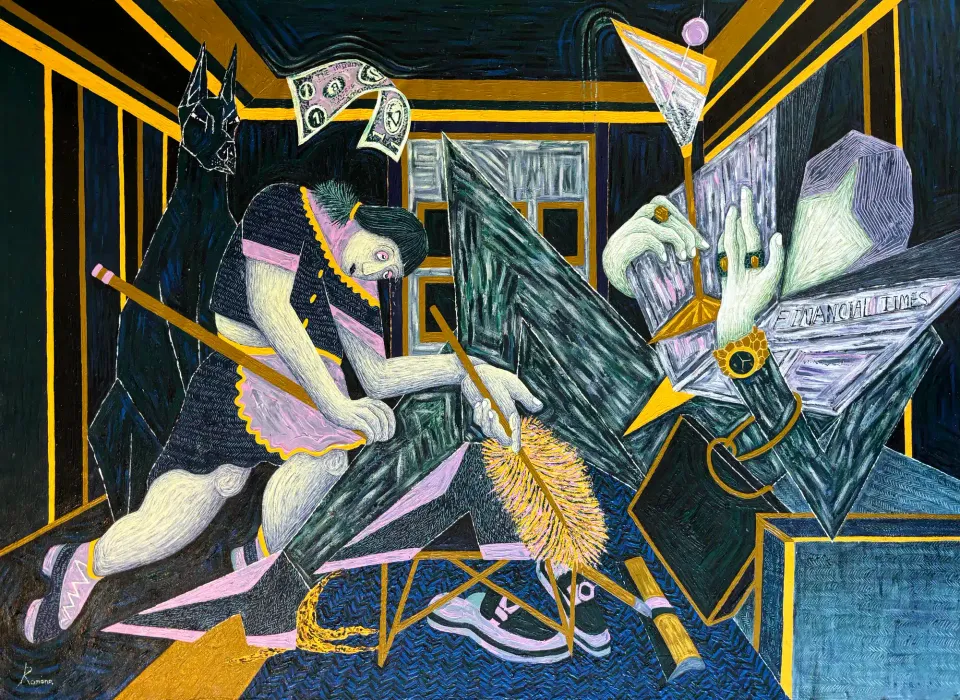Tomàs Morell | Paintings Related To Life And Its Outcome
Discover Tomàs Morell contemporary artist in painting from Uxval Gochez in Barcelona Spain on Munchies Art Club Magazine with an Interview

PAINTING IN TESTIMONY TO A DEEP ADMIRATION AND LOVE FOR THE FEMININE
The Munchies art club discovered Tomàs Morell’s work through the group show called "Needful Things" at the Uxval Gochez Gallery last year.
Today we are extremely pleased to share his work and his story in our featured artist article.

WHO IS TOMÀS MORELL?
Tomàs Morell is a contemporary artist born in Barcelona in 1964, and moved to Germany with his family in 1974, where he attended university, and subsequently lived in Nurnberg, Erlangen, Berlin, Cologne, Frankfurt.
He currently lives between Barcelona and Albons (Empordà), Spain.

Tomas Morell graduated from the “Kunst Akademie”, Nuremberg, Germany, with a Fine Arts degree in 1990.
He subsequently studied graphic design and communication in the “Escola Massana”, Barcelona, Spain, where he graduated in 1994.
WE ASKED TOMÀS A COUPLE OF QUESTIONS AND THIS IS WHAT HE TOLD US:
1. Please introduce yourself and your work
I was born in the grey Barcelona of 1964 as the second child of a Spanish/Catalan father and a German mother.
After the family business began to have some difficulties, my father decided to start a new life with us in Erlangen, near Nuremberg, Germany, my mother’s hometown.


Tomàs Morell: Walking woman | 2022 | Oil on linen | 130 x 100 cm | Image courtesy by the Artist -> Tomàs Morell: The smoke | 2022 | Oil on linen | 46 x 37 cm | Image courtesy by the Artist
Moving from a southern family life typical of Barcelona at that time, to the life of a small provincial town in Germany in the 70s, had a remarkable impact on our lives and surely marked my intrinsic desire to find a way out of all the contradictions that were arising.
I believe that drawing and painting were a great help in this.
My art has always been related to life and has come out of it.
2. Are others in your family artistically inclined?
My parents loved the arts.
They were both lovers of classical music.
My father studied violin when he was young at the conservatory in Barcelona and my mother liked to sing.

She was the one who always took us to museums and places of artistic interest.
I’m a bit embarrassed to say it... I don’t know why, but they decided that my sister and I should go to the “Orfeó Gracienc” to study classical ballet.
There I had direct contact with the stage, the theatre and everything that surrounds it.
These were probably experiences that later appeared in my work, in form of theatricality and ¨mise en scène¨.

3. When did you get started with art? What would you say were your earliest influences?
Once in Germany, my sister took up ballet and I went through a period of studying piano and then, at the age of 14, I started painting lessons in the studio of Stanik, who was a local painter.
I remember how impressed I was by his rooftops and panoramic views of traditional Franconian villages.

I discovered that painting had the capacity to be veracious.
Much earlier, at a very young age, I visited the Picasso Museum in Barcelona with my school.
In front of a charcoal drawing of his, representing a horse mortally wounded in a bullfight, I saw for the first time a painting and I understood that with a drawing or painting one could express personal and intimate thoughts.

4. How would you describe your present work to someone who has never seen it?
My most recent work deals with the human figure and the latest series more specifically with the female figure.
I am interested in exploring ideas related to women’s identity and femininity, using contemporary stereotypical images, interwoven with personal memories and experiences.

The invented scenes have a humorous character, among other things they allude to the debate around gender identity, and although they emphasise irony in approaching the human condition, the paintings are testimonies to a deep admiration and love for the feminine.


Tomàs Morell: Young Dutch Artist in front of the seaside | 2022 | Oil on paper | 23x16 cm | Image courtesy by the Artist -> Tomàs Morell: Woman on the beach | 2022 | Oil on linen | 200x150 cm | Image courtesy by the Artist
5. Why do the portraits of the women you paint predominantly have no facial features?
When I first started painting women, I had been painting the feminine through bouquets and floral scenes full of gestures and movement for a number of years.
I had spent a long time avoiding painting the body because of the problems it holds for me. I think that men and women are the most painted motifs in the history of mankind.
The references are endless.
It is difficult to cover this subject without other artists coming to mind.
I came from emphasising the gesture and I wanted to give continuity to this gesture, in the body.

That’s why I tried to eliminate what seemed superfluous from the start. Minimising the facial, has allowed me to focus on other issues of the body.
It is not about creating a style “per se”. Rather it is part of a strategy to reach the emotional and therefore particular. I understand that painting comes from my personal script.
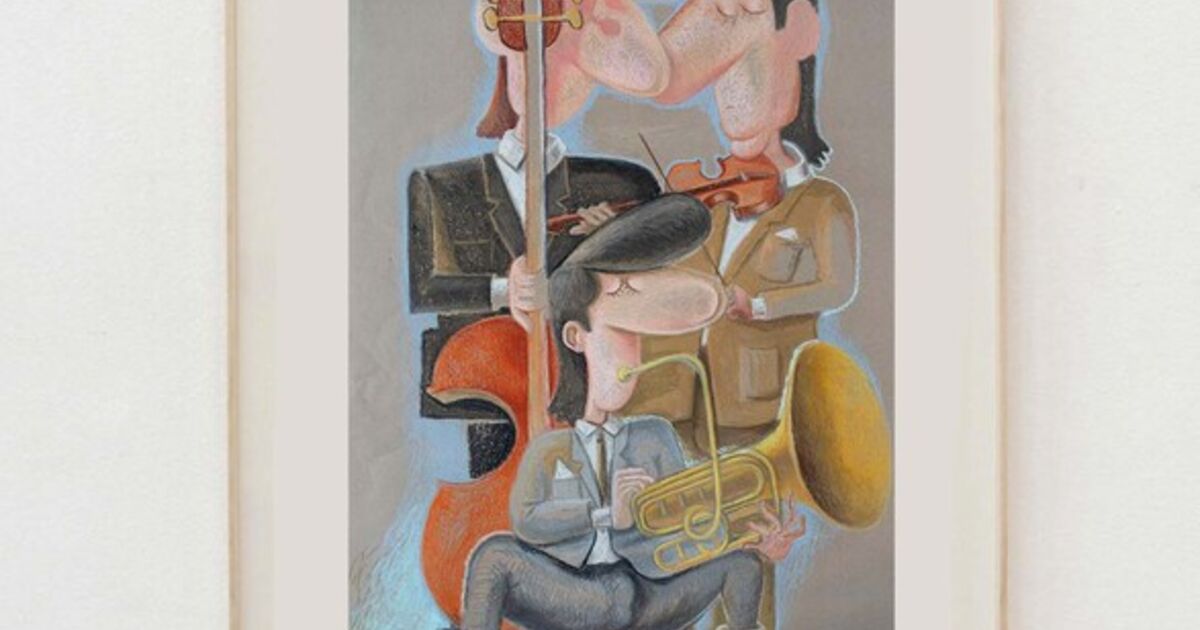
Tomàs Morell -> Artsy
I must follow the underlying narrative and give priority to what is the most essential.
For Cezanne the face was the culmination of art and he used to save it for the end.
I see myself one day painting faces and focusing fully on all their possibilities. Gestures, glances, internal structures, etc.

6. Most of the paintings you have shared are outdoors, in nature or by the sea. What does the beach represent in your paintings?
I believe it represents many things.
As I mentioned above, I was born in a coastal city on the Mediterranean and the sea is therefore my most natural habitat.


Tomàs Morell: Woman walking on the beach | 2022 | Oil on paper | 32x38 cm | Image courtesy by the Artist
Placing “the woman” in this external habitat makes it easier for me and therefore allows me to be more audacious in the negotiation between the inner/outer world.
In the society of consumption and entertainment, the beach, its beauty, the idea of summer, warmth and lightness is associated with holidays and relaxation.
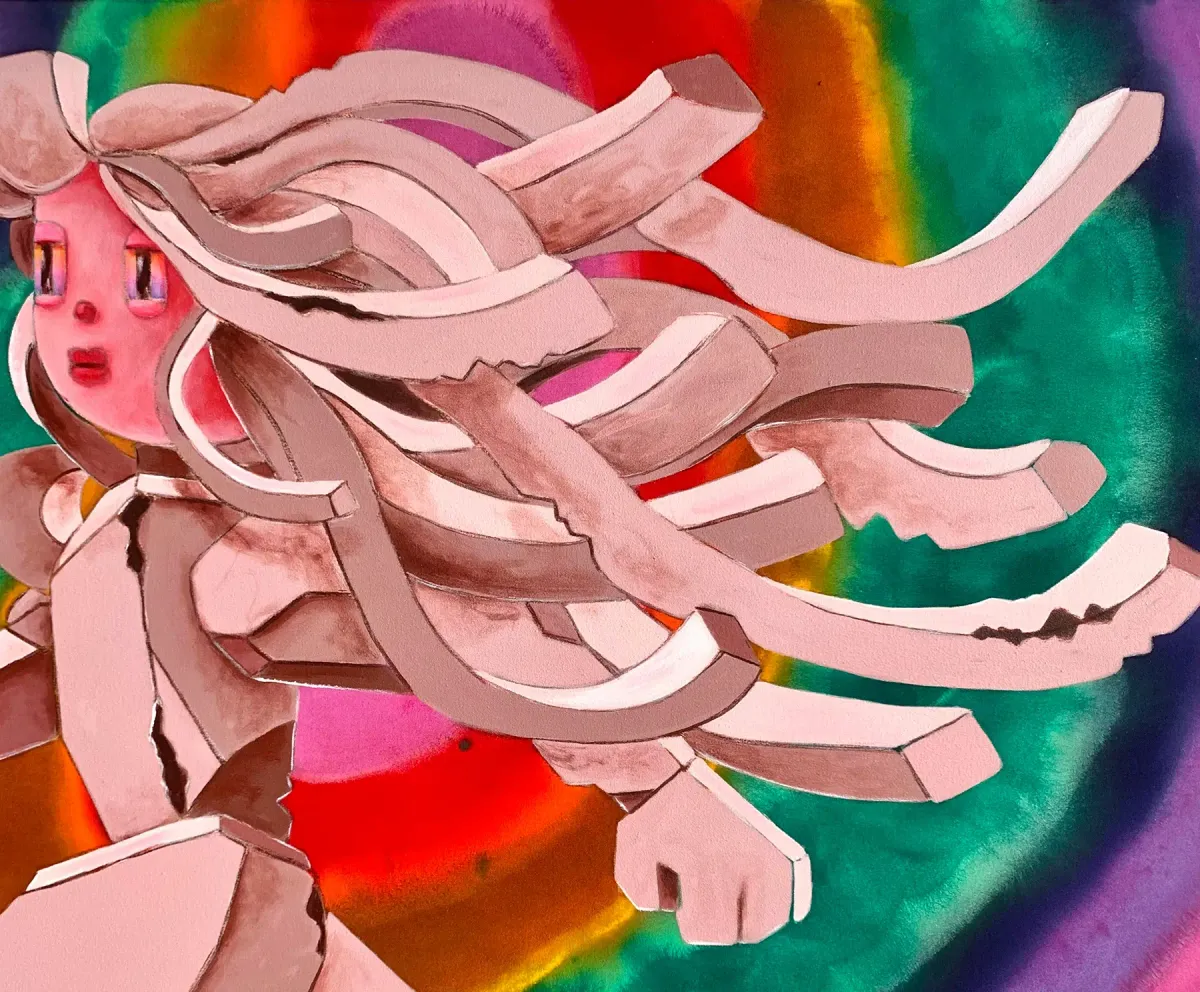
More new Painter to discover -> Read more
One could say that the beach is a place where one can expose oneself to the world, a place where one can enjoy oneself, a place where one can relax.
It is a place where the great promise of freedom is exhibited.
For thinkers such as Freud and Lacan, “the beautiful” is closer to evil than too good; for Lacan, beauty acts as a barrier and is situated on the border of its complete opposite.

It could also be said that the horizon is the cradle of dreams, infinite longings, but that its tranquillity and calm and passivity also evoke ideas of eternal peace and therefore endings.
A human being and a horizon provide much to play with...

7. Where is your studio? Where do you work from?
My studio is in Barcelona, in the neighbourhood of “Poble Nou” , which used to be an extremely important industrial area in Catalonia.
This neighbourhood lost its identity as a result of globalisation and is now facing a major renovation, which is going to be a determining factor in post-industrial Barcelona.
At the moment we are renovating another studio/house near the coast with my partner, who is also a painter.

8. How long do you spend on one painting? Do you work on more than one piece at a time?
Too much time, due to my rather obsessive nature.
I like to work on one piece at a time, intensively and until the end, but lately I have been forced to change this habit and work on several pieces in a row.
In the end it is a more strategic position which allows me to produce more and makes it easier to respect the required drying times in oil painting.


Tomàs Morell: Woman running | 2022 | Oil on linen | 100x81 cm | Image courtesy by the artist -> Tomàs Morell: Woman in front of the seaside | 2022 | Oil on paper | 34x23,5 cm | Image courtesy by the Artist
9. Your work over the years has changed quite a bit. Would you call it development or diversity?
I think it is both at the same time.
So far, the most decisive thing for me has not been the search for a “ Style“ in capital letters, but rather the reconstruction and coherent structuring of my inner emotional processes.
I have not hesitated for a second to use creation and painting in a way that brings internal order.
And it is also true that “diversity” is an interesting debate in art.
My identity is diversity.
I grew up speaking Catalan, Spanish and German.
My conviction is that culture becomes much more interesting when it mixes.

10. What role does Instagram play in your artistic practice?
Yes, Instagram has certainly become an indispensable tool in my daily work as an artist.
I love having the window open to the world, both to see and study, as well as to be seen.

Leaving the negative part aside, the internet and social media in particular have opened up the world and created endless possibilities for connection.
It fascinates me to think that I may be making a piece in my studio that can then be perceived in another part of the world by someone completely unknown, but with whom there may be parallel congruences.

11. Any recent or upcoming projects you would like to share?
At the moment I am preparing a solo exhibition which will take place in a gallery in Beirut in May 2023.
There is another solo exhibition coming up at the beginning of 2024, this time in an institutional space on the coast of Maresma.
I will start thinking about this second exhibition once I have sent the paintings to Libanon. I really like to thematize my solo exhibitions.

More Painter to discover -> Munchies Art Club Magazine


